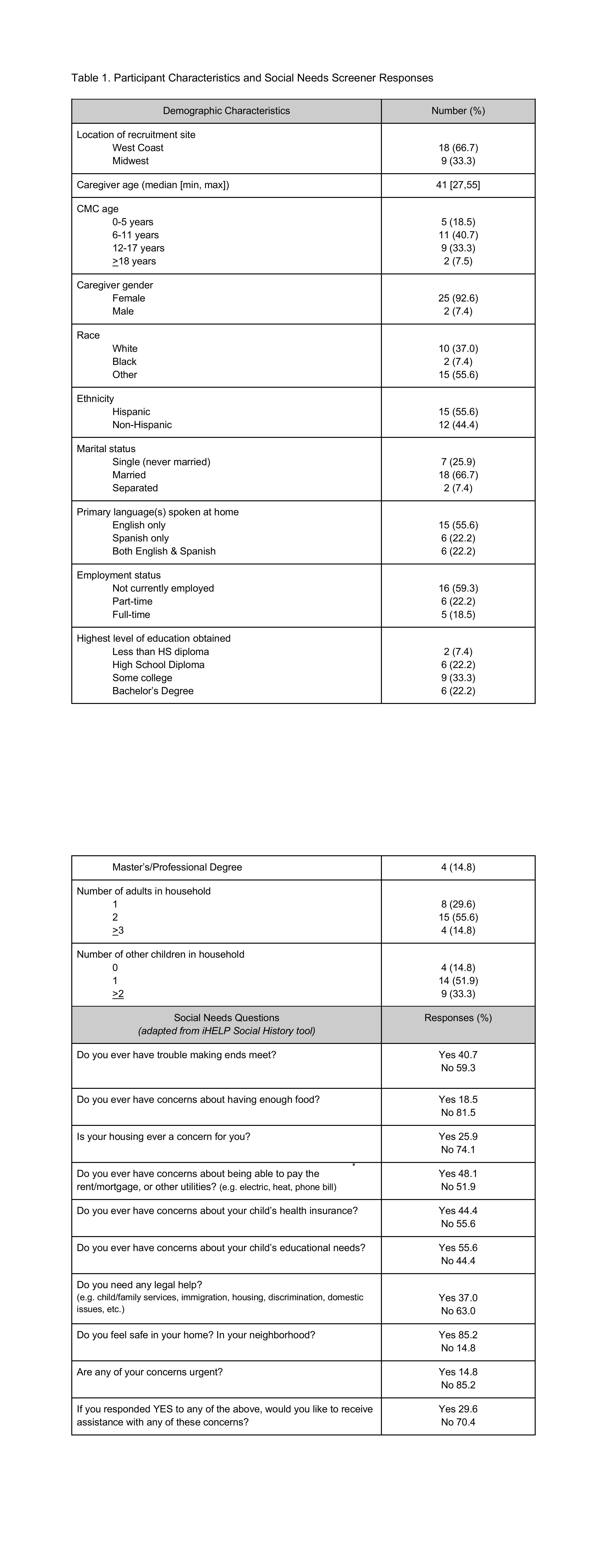Children with Chronic Conditions 1
Session: Children with Chronic Conditions 1
504 - What the “Ideal” System Looks Like: Caregiver Perspectives on Systems-Level Approaches to Care Coordination for Caregivers of Children with Medical and Social Complexity
Sunday, April 27, 2025
8:30am - 10:45am HST
Publication Number: 504.7105
Jennifer Peralta, UCLA, Los Angeles, CA, United States; Rebecca N. Dudovitz, UCLA, Los Angeles, CA, United States

Jennifer Peralta, MD, MSHPM, MS (she/her/hers)
Health Sciences Clinical Instructor
UCLA
Los Angeles, California, United States
Presenting Author(s)
Background: Children with medical complexity (CMC) face unique care coordination challenges across healthcare, education and social services systems. These navigation challenges may be exacerbated by social complexity (i.e. multiple complex unmet social needs). While many complex care programs focus on coordinating medical needs and services, less is known about what systems-level interventions CMC families, particularly those also experiencing social complexity, perceive as useful for improving family health and wellbeing.
Objective: To characterize caregiver perspectives of CMC with and without social complexity on 1) how social complexity may impact their ability to navigate systems of care and support their child’s health and 2) to identify ideal characteristics of family-serving systems of care, including healthcare, education and social services systems.
Design/Methods: Semi-structured interviews were conducted with 27 caregivers (21 English-speaking, 6 Spanish-speaking) with varying degrees of social complexity recruited from 2 geographically distinct pediatric complex care programs (16 West Coast, 9 Midwest). Interviews were audio recorded and transcribed. Independent coding was performed, followed by transcript review and discussion of initial codes using a Constructivist Grounded Theory approach. Codes were refined through iterative analysis until thematic saturation was reached. A demographic survey including social needs assessment was also administered.
Results: 81.5% of participants reported at least 1 social need; unmet social needs related to finances, education services, and insurance coverage were most common. According to caregivers, ideal family-serving systems of care for CMC with and without social complexity would be characterized by the following: multimodal access to community resources and navigation assistance; minimizing caregiver administrative burden through data integration, technological advances, and modified eligibility criteria across family-serving systems in both public and private sectors; longitudinal peer support, and increased caregiver support during critical time periods (i.e. transitions of care). Humanistic, compassionate, empathetic relational care was identified as key in combating ongoing systems-related trauma and caregiver burnout. CMC with higher levels of social complexity emphasized importance of public benefits access.
Conclusion(s): CMC, particularly those with social complexity, require multi-sector interventions that meet their unique care coordination and navigation needs beyond typical complex care programs.
Table 1. Participant Characteristics and Social Needs Screener Responses

Table 2. Themes and Selected Illustrative Quotations
.jpg)

